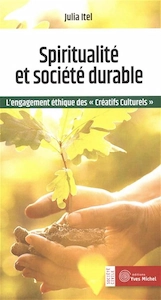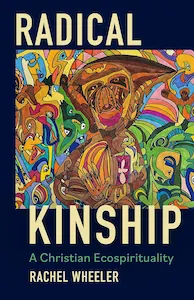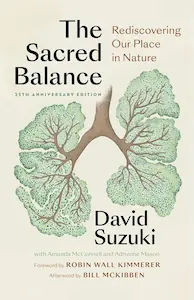Exploring Ecospirituality’s Foundations
Ecospirituality represents a significant convergence of environmentalism and spirituality, revealing a profound amalgamation of ecological awareness with personal spiritual quests. Its genesis can be traced to the symbiotic relationship between ecological thinking and alternative spirituality. The foundations of ecological thought were laid by 18th-century naturalists, who catalyzed a renewed interest in the natural world. This interest challenged the then-dominant mechanistic view of nature, fostering a new aesthetic appreciation and contemplative engagement with the environment.
Parallelly, the process of secularization in modern societies led to a “re-enchantment” of the world. This re-enchantment signifies a departure from institutionalized religious doctrines towards a more personal, experience-based spirituality. In this context, ecospirituality emerges as a response to the growing disenchantment with materialistic and technocratic worldviews.
It represents a quest for deeper meaning and connection with the natural world, marrying the insights of ecological science with the rich tapestry of spiritual traditions. This blend is particularly evident in practices and beliefs stemming from neopaganism and an animistic perspective, which view nature as sacred and intertwined with human existence. Thus, ecospirituality is not just a philosophical concept but a lived experience, one that seeks to harmonize ecological understanding with spiritual fulfillment.
The Evolution of Contemporary Spirituality
The landscape of contemporary spirituality has evolved remarkably over recent decades, unfolding in three significant currents, each reflecting the changing attitudes and needs of society. The first of these currents, known as the “mystical-esoteric nebula,” dominated the spiritual scene from the 1970s to the 1990s. Characterized by an emphasis on self-awareness, this phase marked a departure from conventional religious practices, favoring instead a diverse array of esoteric and mystical traditions. This period saw a surge in interest in Eastern philosophies, astrology, tarot, and other forms of divination, all aimed at personal enlightenment and self-growth. These practices encouraged individuals to explore deeper states of consciousness and seek spiritual enlightenment through various mind-body techniques and psycho-esoteric practices.
Ecospirituality uniquely bridges two distinct realms of knowledge – intuitive and scientific – creating a dynamic epistemological foundation.
Following this, the “psycho-philosophical-spiritual” current emerged in the 2000s, signifying a shift towards integrating more intellectual and secular disciplines into spiritual life. This current underscored the convergence of philosophy, particularly the ancient theme of wisdom, and the principles of positive psychology, with spirituality. It marked a transition to a more pragmatic approach to spirituality, one that sought to blend psychological insights with spiritual practices. This current emphasized teaching individuals how to live harmoniously, both with themselves and others, and aimed at achieving lasting happiness and well-being.
The most recent trend in this spiritual evolution is ecospirituality, which gained traction in the late 2010s, especially in French-speaking Europe. This movement represents a profound desire to reconnect with nature, merging ecological thought and awareness with alternative spiritual practices. Ecospirituality is distinct in its approach, as it not only focuses on individual spiritual growth but also on fostering a deep, respectful relationship with the natural world. It often incorporates elements of deep ecology, animism, and a reverence for the Earth, viewing the planet as a living, sacred entity. This current reflects a growing consciousness about environmental issues and represents a spiritual response to the ecological crises facing the planet. In essence, ecospirituality is a call to recognize and honor the interconnectedness of all life, fostering a holistic approach to living that is both spiritually fulfilling and ecologically responsible.
Understanding Ecospiritual Practices
To gain a deeper insight into the realm of ecospirituality, an intricate ethnographic approach was adopted. This approach meticulously combined participant observations, semi-structured interviews, and netnographic surveys. The participant observations were instrumental in providing a direct, immersive experience of ecospiritual practices and rituals. These observations took place in various settings, including ecospiritual events like “the Work that Reconnects” workshops, forest therapy sessions, and shamanic rituals, offering an in-depth view of the practices in their natural context.
Semi-structured interviews played a crucial role in this study, enabling a dialogue with individuals actively engaged in ecospiritual practices. These interviews, conducted with a diverse group of practitioners across France, Switzerland, and Belgium, provided rich, personal insights into their experiences and beliefs. The questions were designed to be open-ended, allowing interviewees to express their views freely, thus revealing the deeply personal and subjective nature of ecospirituality.
Additionally, netnographic surveys were conducted to explore the online dimensions of ecospirituality. These surveys examined social media platforms and online forums, where ecospiritual practitioners shared their experiences and insights. This aspect of the research was vital in understanding how ecospiritual ideas and practices are disseminated and discussed in digital spaces, thus offering a comprehensive view of the movement’s reach and impact.
This multi-faceted ethnographic approach was essential in capturing the essence of ecospirituality. It allowed for a nuanced understanding of the practices, beliefs, and experiences of those involved, placing them within a larger sociopolitical and cultural context. This methodology not only highlighted the diverse and rich nature of ecospiritual practices but also shed light on their significance in addressing contemporary ecological and spiritual needs. By integrating various research methods, the study provided a holistic view of ecospirituality, underscoring its complexity and depth.
Ecospirituality’s Diverse Manifestations
Ecospirituality, a multifaceted phenomenon, manifests in a variety of forms, each contributing to its rich and diverse ethos. As both a discourse and a compilation of beliefs and practices, ecospirituality spans several distinct yet interconnected elements.
Ecosensitivity is about perceiving and understanding the world through a heightened awareness of our senses.
Firstly, ecopsychology stands as a pivotal component of ecospirituality. It explores the profound relationship between human psychology and the natural environment, addressing the emotional and psychological aspects of environmental issues. Ecopsychology aims to heal the human-nature relationship, advocating for a deeper, more empathetic connection with the Earth.
Eco-therapies, another crucial element, emphasize the therapeutic benefits of being in nature, promoting physical, mental, and emotional well-being. These therapies include practices like forest bathing, animal-assisted therapies, and various nature-based meditation and mindfulness techniques.
Ethnobotany forms another aspect of ecospirituality, studying the intricate relationship between humans and plants. This discipline delves into traditional knowledge about plant uses, celebrating the wisdom of indigenous and local communities and their understanding of the natural world.
Neoshamanism and neopaganism represent a revival and reinterpretation of ancient spiritual traditions. These practices often involve ceremonies and rituals that honor the Earth, its cycles, and its elements, fostering a sense of reverence and connectedness to nature.
Lastly, various mystical-esoteric practices, ranging from geomancy to astrology, contribute to the eclectic nature of ecospirituality. These practices often merge ancient wisdom with modern insights, offering unique pathways to spiritual growth and ecological consciousness.
Together, these diverse manifestations of ecospirituality illustrate its comprehensive nature, integrating ecological awareness with spiritual exploration. Each element, with its unique focus and methods, enriches the overall fabric of ecospirituality, offering varied paths for individuals to engage with and understand their relationship with the natural world.
Knowledge Paradigms in Ecospirituality
Ecospirituality uniquely bridges two distinct realms of knowledge – intuitive and scientific – creating a dynamic epistemological foundation. This integration challenges and enriches traditional distinctions between rationality and spirituality, offering a more holistic approach to understanding the world.
Ecosensitivity is the heart of ecospirituality.
Intuitive knowledge, a cornerstone of ecospirituality, is deeply rooted in personal experience. It embodies a non-rational, sensorial engagement with nature, fostering a profound sense of connectedness and unity with the natural world. This form of knowledge often manifests through bodily sensations, emotions, and deep, unspoken understandings. It’s about feeling the pulse of the Earth, sensing the subtle changes in the environment, and experiencing a profound sense of belonging. This intuitive connection with nature often leads to significant self-expansion, where the boundaries between the self and the natural world become blurred, reinforcing a deep ecological consciousness.
Complementing this is the realm of scientific knowledge, which many in the ecospiritual community value highly. This aspect involves a deep understanding and appreciation of ecological and environmental science. Ecospiritual individuals often possess a strong educational background and engage actively in reading and researching scientific literature on environmental issues. This scientific grounding allows them to contextualize their intuitive experiences within the broader framework of ecological science, enriching their understanding of nature’s complexities.
The amalgamation of intuitive and scientific knowledge in ecospirituality represents a comprehensive approach to understanding and relating to the natural world. It transcends the binary of rationality versus spirituality, suggesting that a deep connection with nature involves both understanding its scientific aspects and experiencing its mystical and intuitive dimensions. This synthesis of knowledge not only enriches the ecospiritual experience but also fosters a more nuanced and profound engagement with the environment, encouraging sustainable and respectful interactions with the Earth.
Ecosensitivity as a Core Concept
In concluding this exploration of ecospirituality, it becomes evident that the term “ecosensitivity” more accurately encapsulates the essence of this phenomenon. Ecosensitivity foregrounds the sensory connection to nature and the living world, emphasizing a deep, embodied engagement with the environment. This concept transcends traditional notions of spirituality, moving beyond rituals and doctrines to a more direct, intuitive interaction with the natural world.
Ecosensitivity is about perceiving and understanding the world through a heightened awareness of our senses. It involves a profound appreciation and respect for the intricate relationships and interdependencies within ecosystems. This sensory connection fosters a deep empathy and kinship with nature, leading to a more responsible and sustainable interaction with our environment.
This concept also challenges the conventional separation between the observer and the observed in the context of nature. Ecosensitivity suggests a more integrated, participatory approach to experiencing the world, where humans are not mere spectators but active, sentient participants in the natural order.
In essence, ecosensitivity is the heart of ecospirituality. It is a holistic understanding that combines the intuitive and the empirical, the personal and the universal. This approach fosters a profound sense of belonging and interconnectedness with all forms of life, urging a shift in perspective from exploiting nature to coexisting harmoniously within it. The adoption of ecosensitivity as a core concept in ecospirituality marks a significant step towards a more empathetic, compassionate, and sustainable relationship with our planet.
Adapted from an academic article for a wider audience, under license CC BY 4.0













